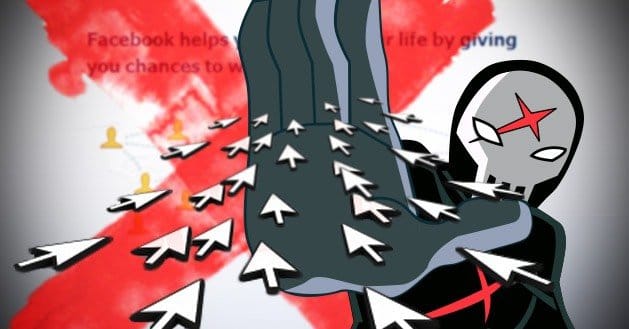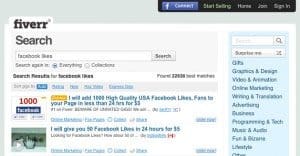 Written by ContentPowered.com
Written by ContentPowered.com
Improving your flow of traffic and your visibility on Facebook is a good thing, but the quality of that traffic matters. There’s a literal world of difference between engaged users in the English-speaking first world and the developing nations. Traffic from the United States, even when it’s poor, is generally much better than the best traffic you’ll find in Bangladesh or Pakistan.
The problem is that so much low quality traffic comes from click farms based in these locations. It’s easy to accidentally run afoul of a click farm, regardless of whether you’re buying likes or advertising for them on Facebook. Thousands of people, paid to like pages by the thousands each, can inflate your social following by tens of thousands per week.
What are Clickfarms?
The idea behind a clickfarm is simple, but it takes a little explanation to understand how they came to be.
In the old days, when social media likes and website views were incredibly valuable, many webmasters turned to the dark side of the Internet to find ways to inflate them. Earning 1,000 likes or 1,000 website hits was a tough process, but it could be made a lot easier by setting up a program to refresh the page over and over. For Facebook, those bots would register accounts and use them to like the page.
Robots are easy to detect. Facebook could easily find these fraudulent accounts and remove them. Something needed to be done to make those number-inflating accounts less visible. Something to make them look more legitimate. The answer, as it turned out, was just to make them legitimate – or as legitimate as it was possible to make them, anyways.
Webmasters pay people in developing nations like Bangladesh, where an annual income of $120 is acceptable, to create Facebook accounts. Or, more likely, webmasters pay a company that in turn pays these people. These people register accounts, sometimes dozens, and sit idle until the money comes in. They receive a payment and a target Facebook account, and they relentlessly like the page with their accounts.
Even this was fairly easy to detect. After all, if 10,000 accounts all mobilize in the span of a week and they all like the same selection of 10 pages, those ten pages very obviously purchased likes from a click farm. At one point, Facebook purged so many fraudulent accounts it totaled nearly 10% of their entire userbase. Unlike YouTube wiping views, however, Facebook’s deletions didn’t remove fake likes.
The modern version of a clickfarm still works the same way, only the people running the accounts take steps to obfuscate their traffic. In addition to liking the pages they’re paid to like, they also click through ads and related pages on Facebook and like pages they aren’t paid to follow. This is how your page, running legitimate Facebook ads, can run afoul of a clickfarm. The flurry of “organic” likes makes it much harder to pick out the mobilization of a clickfarm for purchased likes.
Why Clickfarms are Bad for Business
Clickfarms hurt you, even if it’s not your business putting them to use. Even though likes are an empty social metric, they still form a basic sort of peer pressure. Given the choice between your business, with 100 likes, and your competitor, with 10,000, the average user is going to think the larger following indicates a better business.
The traffic hurts their message, however, and it would hurt yours if you encountered a clickfarm as well. Think about it this way; every time you post a piece of content, Facebook picks a selection of your users to show it to. If all of those users are legitimate, many will like and share the post. This makes Facebook show it to more people, in a cycle that earns you more organic reach and more viral reach. On the other hand, if many of those users are clickfarm workers, they won’t like or share the post, and Facebook doesn’t proceed to showing your post to more people.
How to Avoid Clickfarms
It would be nice to simply write “don’t buy likes” and be done with it, but unfortunately, that just doesn’t work. That obfuscation behavior has clickfarm workers liking pages who advertise legitimately.
Another question is why doesn’t Facebook simply ban these countries entirely? They can’t, of course. Though they don’t run clickfarms themselves, they do benefit from the money their users spend on ads. When a user sees results from an ad, even if the traffic isn’t high quality, they’re more likely to invest more. And, of course, there are plenty of legitimate users in these countries; Facebook couldn’t possibly ban so many real users just to catch those exploiting the system.
Unfortunately, the burden of avoiding clickfarms falls to the individual business. There are a few steps you can take to try to protect yourself, but remember; clickfarms aren’t entirely based in developing nations, and they aren’t entirely blockable.
Consider IP blocks and domain exclusions. You can’t use these too much on Facebook, but you can use them on your website to help eliminate any potential referral traffic coming from clickfarms.
Use precise geotargeting. If you’re an online-only business, limit advertising to countries you actually sell products in. If you’re a local business, you might even benefit from limiting your advertising to the same state.
Use other forms of advertisement beyond PPC. Facebook’s PPC is vulnerable to clickfarms, but you can run other forms of ads for other conversion factors, such as downloading an app instead of liking a page.
Stay on top of your traffic. Keep an eye out when you see a sudden influx of likes, and if they’re all from people with 1,000+ liked pages and zero engagement, take steps to remove them. This is a tedious process, unfortunately, but it helps protect you from their negative effects.
Of course, you should also avoid directly hiring clickfarms to boost your likes. Hiring third parties for advertising is as safe as using Facebook’s PPC system, with all the same caveats; monitor your traffic and cut your budget if the traffic bears the signs of poor quality clickfarm traffic.





